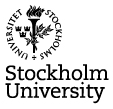Prof. C.S. Holling on Panarchy and Understanding Transformation in Human and Natural Systems
Prof. C.S. Holling will on March 22, 2001, hold the seminar "Panarchy: Understanding Transformation in Human and Natural Systems".
They are formed from hierarchies and adaptive cycles that represent ecosystems and socio-ecosystems across scales. Each level of the panarchy operates at its own pace, protected from above by slower, larger levels but invigorated from below by faster, smaller cycles of innovation.
The whole panarchy is therefore both creative and conserving. The interactions between adaptive cycles in a panarchy combine learning with continuity. That clarifies the meaning of sustainable development. Sustainability is the capacity to create, test and maintain adaptive capability.
Development is the process of creating, testing and maintaining opportunity. The phrase that combines the two, sustainable development, therefore refers to the goal of fostering adaptive capabilities and creating opportunities.
About Professor Holling
Prof. C. S. Holling is Eminent Scholar, Arthur R. Marshall Chair in Ecological Sciences, Department of Zoology, University of Florida.
Throughout his research, professor Holling has had the goal to blend concepts of stability theory and ecology with modeling and policy analysis and to develop integrative theories of change that have practical utility.
He has introduced important ideas in the application of ecology and evolution, including adaptive ecosystem management, the Adaptive Cycle, and the recognition that evolution was the best model for the origins of novelty in management crises.
He has, throughout his career, sought to bring abstract science to the real temporal and spatial scales of resource management and this has led to his continuing involvement with social science. Holling has also led extensive international programs of research.
The most recent, “Resilience of Ecological, Economic and Institutional Systems" had the purpose to develop a theory of change in complex systems that integrate ecological, economic and social science theory and examples.
Time and place
Place: The Beijer Hall, the Royal Swedish Academy of Sciences Lilla Frescativägen 4, Stockholm
Vacancies | Contact | Environmental policy | Cookies
Stockholm Resilience Centre
Stockholm University, Kräftriket 2B | Phone: +46 8 674 70 70 | info@stockholmresilience.su.se
Organisation number: 202100-3062 | VAT No: SE202100306201


